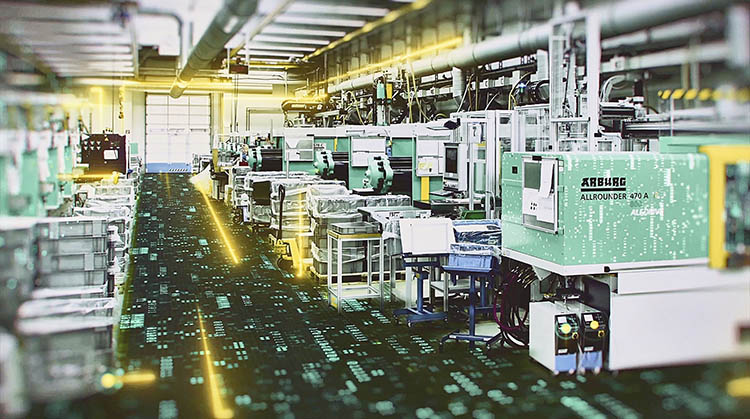
Hannover Messe: Software and additive manufacturing for the factories of the future
Software and IT solutions will be high on the agenda at Hannover Messe 2018, which is no wonder in view of their pivotal role in connecting the individual links in the industrial value chain.
Integration and networking are central to the digital transformation of industrial production. For this reason, the exhibit categories “Automation” and “Digital Factory” will be a magnet for visiting professionals in April.
In halls 6, 7 and 8 the spotlight will be on IT solutions and integrated processes – in particular, additive manufacturing, CAD/CAM, CAE, MES, ERP and PLM.
Further topics include augmented reality, artificial intelligence/machine learning, big data analytics and industrial IT platforms.
In addition, visitors will have the chance to attend value-adding forums, conferences and lectures for guidance on winning approaches to deploying integrated IT solutions.
Additive manufacturing will figure prominently – not only in the exhibit lineup, but also at a special symposium on Tuesday, 24 April.
The value of data lies in collation and integration. This applies to design data, product data as well as machine data.
For this reason, companies depend on effective data management systems.
Against the background of the Internet of Things, Product Lifecycle Management (PLM) delivers essential information for product improvement purposes.
The same applies to Manufacturing Execution Systems (MES), which integrate various information flows (tool data, capacity data and warehouse data).
This creates the basis for predictive maintenance and the elimination of unplanned downtimes.
The role of Enterprise Resource Planning (ERP) Systems is changing. Originally, such systems were designed to initiate, process and invoice orders.
Now they are capable of scheduling orders in advance (i.e. which customer orders can be taken when, and at what cost). In this way, ERP software is helping to automate business processes.
The trend towards digitization is also making an impact on the standard software market. Artificial intelligence and cloud services allow users to capitalize on growing volumes of data.
The engineering company Arburg will serve as an example of a plastics processing firm leveraging the benefits of digital transformation. The Arburg presentation at Hannover Messe 2018 will focus on connectivity.
“We see ourselves not only as a machine supplier, but also as a technology partner, efficiency champion and frontrunner in the digital transformation of the plastics industry,” says Heinz Gaub, managing director technology and engineering at Arburg, which is mainly a machine construction company.
“The demands are increasing. The goal is to make component production more flexible, to use machine capacity to best effect, and to make production processes more transparent. To this end we offer a broad array of technologies and solutions.”
The Arburg portfolio ranges from smart machines and host computers to smart factory solutions and services for plastics manufacturers. In all cases, the goal is to create flexible and automated processes, generate added value and enhance efficiency and reliability.
At Hannover Messe 2018, the company will be showcasing its smart factory solutions, the Arburg Remote Service (ARS), Industry 4.0 components, and a combination of injection molding and additive manufacturing to create customized components in single-unit batches.
Additive manufacturing as a key element in the digital factory
Additive manufacturing will be one of the highlights at Hannover Messe. This display category will be located in the southern section of Hall 6, together with CAD and PLM technology.
“We regard industrial 3D printing as a key element of future factories,” says Dr Adrian Keppler, CEO of EOS. “The benefits of our technology – for example, design freedom, functional integration and rapid commencement of production – are driving forces behind new products, business models and supply chain concepts.”
The goal is to integrate conventional and additive manufacturing in the digital factory.
Keppler says: “As technology leaders we offer hardware and software solutions geared to the demands of future production scenarios.
“We create relevant interfaces such as EOSConnect for component and data flows and, thanks to our Additive Minds consulting service, have the necessary expertise to assist our customers with the implementation of digital manufacturing.”
The lineup of exhibitors also includes 3D Systems, HP Printing, Protiq and alphacam.
On Tuesday 24 April 2018, the 4th Additive Manufacturing Symposium will focus on this innovative production technology for the first time in the Technology Academy (Pavilion 36).
Users from the mechanical engineering sector will demonstrate real-world applications benefited by additive manufacturing in terms of quality, reliability, energy consumption and costs.
After the lectures, participants can take a guided tour of the Digital Factory halls and view exhibits on show by various additive manufacturing specialists.
The Additive Manufacturing Symposium is being held in partnership with Germany’s mechanical and plant engineering association VDMA.


